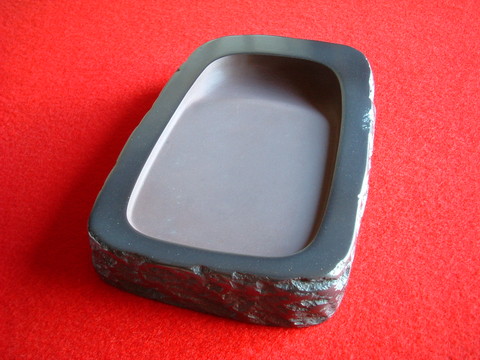
赤間硯は鎌倉時代の初めに、鶴岡八幡宮に奉納されたという記録があります。江戸時代中期には各地で売り広められました。
毛利氏が藩を治めていた時代には、原料となる石が採れる山は御止山(おとめやま)として一般には入山を禁じられ、参勤交代の贈り物等として硯が必要になると、藩主の命令で採掘がされました。こうした事情から、長州藩の名産として簡単に手に入れることのできないものでした。

Records exist showing that an Akama inkstone was offered at the Tsuruoka Hachimangu Shrine in Kamakura at the beginning of the Kamakura period (1185-1333). By the middle of the Edo period (1600-1868) these inkstones were being sold up and down the country. By the time that Mori was leading the local clan, unauthorized people were prohibited from mining the stone from which these inkstones were made and should one be needed as a gift at such times at the Sankin Kotai, when feudal lords travelled to live in Edo, permission to mine the stone had to be given by the head of the clan. This made it quite difficult to obtain one of these much prized inkstones from the Choshu clan.
Akama inkstones possess all the right qualities of a good inkstone. The stone is hard and it has a close grain. It is beautifully patterned and is soft enough to work. The hobo on which the ink stick is ground has a close grain helping to produce ink quickly and of the best quality in terms of color and luster. These inkstones are now being produced by 7 firms employing 15 people, 2 of whom are government recognized Master Craftsmen.